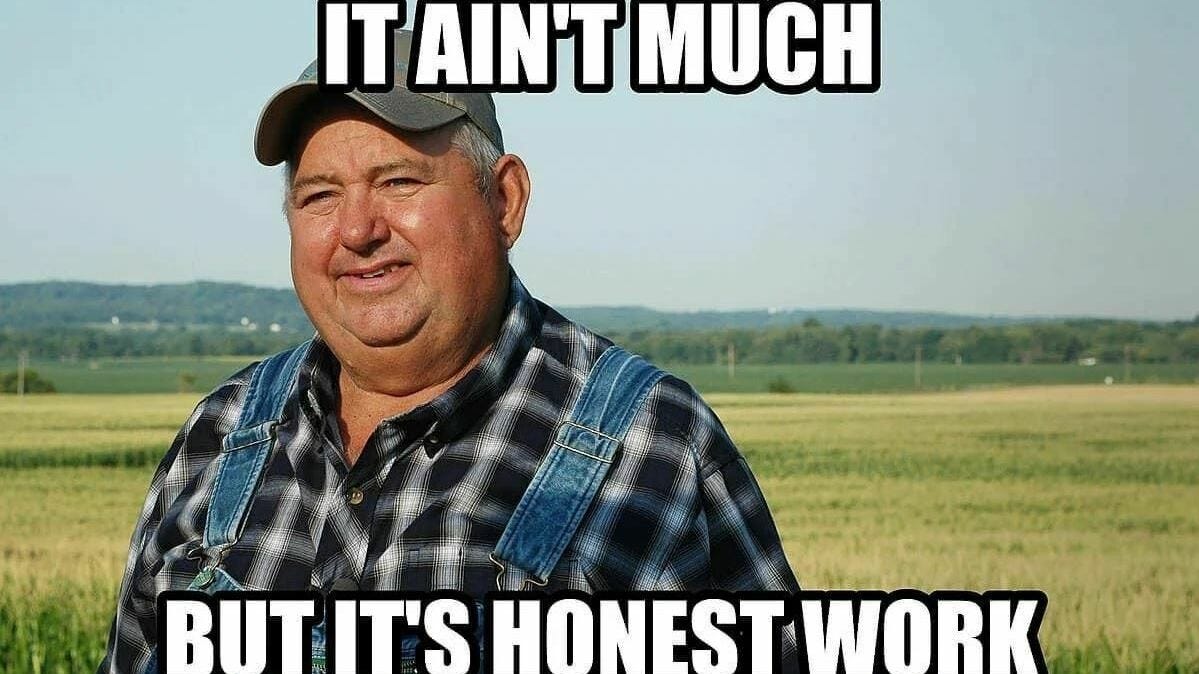The Shapes of Stories (Part III): The Trap of Closure
The case for living out an unfinished story.
This piece is the third and final installment in an ongoing series about how stories shape our lives—how we inherit them, internalize them, and sometimes outgrow them. It’s a personal reflection, but also a kind of conclusion—or perhaps an opening—about what it means to live without needing the story to end. If you’d like to start at the beginning, check out Part I: The Arc We Crave. —KM
We tell ourselves stories in order to live.
— Joan Didion
About 15 years ago, my family and I did something radical: we sold our little house in Texas, packed up our two kids, miniature dachshund, and two cats into our Kia Sorento, and drove 1,065 miles to Chicago. I’d been offered a job at one of the top five universities in the country—an opportunity so rare, so prestigious, that it felt absurd to turn down. For years, I had imagined what it would be like to walk the halls of such a place, to be among the best and brightest. Now that dream was real.
And for a while, the experience lived up to the dream. The students were brilliant, the faculty world-renowned. The architecture looked like it had been conjured out of a Harry Potter novel—stone facades, oak banisters, wrought iron gates. It was Hogwarts meets Cambridge.
But slowly, the magic wore off. The commute was long, the cost of living high, the hours punishing. My work was closely monitored, my ideas constrained. The students, though bright, often saw their education as a stepping stone to six-figure salaries, not a search for meaning or truth. And despite all the trappings of success, I felt small. Constrained. Exhausted. Unhappy.
And yet—every time I told someone where I worked (especially another academic), I was met with awe. I had “made it.”
So what was wrong with me?
The answer is simple: I had followed a story that wasn’t mine.
As Parts I and II of this series have tried to establish, we all get handed scripts early in life—stories about what success looks like, what happiness feels like, what kind of life is “worth” living. Mine was the classic American bootstrap story: small-town boy works hard, aims high, and ascends to an elite space where his intelligence and effort will finally be validated. And for a while, I believed it. (And I still do, in some ways.) But that story wasn’t built to sustain the reality of life—fatigue, parenting, grief, loneliness, bureaucracy, disillusionment. It didn’t have space for the person I was still becoming.
That’s the trap of closure. We imagine life as a climb toward a summit, a final act of triumph. And when we get there and still feel lost, we assume the problem must be us.
I remember one afternoon, maybe a year into the job, when I attended a campus event featuring MacArthur “genius grant” winner Alison Bechdel, a cartoonist and author of Fun Home. It was one of the rare moments where I was able to carve out time to attend something purely intellectual, without an outcome attached—no networking, no note-taking, no student escorting. Just listening.
She spoke about how her memoir wasn’t written in a straight line. Each chapter looped back over old ground—childhood memories, her father’s death, her emerging queerness—peeling back new layers with every pass. A recursive essay, she called it. Life as revision.
Something about that phrase lodged in my mind. Life as revision. It gave me permission to ask a question I had been avoiding:
What if the story I had been living wasn’t wrong because I had failed—but because it wasn’t mine to begin with?
At the time, I was also trying to finish my PhD. So, in addition to a full-time job, I was juggling academic job applications, a dissertation, and navigating an institutional culture that, at its core, is obsessed with hierarchy. In the academy, everything—your work, your worth, your future—is filtered through reputation and status. And the currency of status is institutional prestige. Where you went to school. Where you teach. Who writes your letters. Who invokes your name at conferences.
Even among people who study power structures for a living, the pecking order is sacred.
So there I was, technically succeeding by several external measures—working at one of the most elite universities in the world, pursuing a PhD, raising a family—and yet feeling more disconnected from myself with every passing week.
The story I had been handed—get the job, earn the degree, ascend the ranks—wasn’t leading to fulfillment. It was leading to exhaustion.
In hindsight, I was experiencing a kind of narrative dissonance—an internal clash between the story I thought I was supposed to be living and the actual emotional experience of living it.
Psychologist Dan Gilbert, in his research on the science of happiness, calls this affective forecasting: our tendency to predict what will make us happy, only to be wrong—often spectacularly wrong—because we base those predictions on cultural scripts, not lived values.
Gilbert’s research shows that we’re remarkably bad at knowing what will bring us satisfaction five, ten, or twenty years down the line. We imagine achievements, titles, or lifestyle changes will produce lasting joy, when in reality, our happiness tends to plateau—or even dip—after those events. We chase what he calls natural happiness (getting what we want) but neglect synthetic happiness (learning to want what we have).
This pattern isn’t a flaw in our character—it’s a flaw in our storytelling.
The problem is that we don’t just imagine futures, we narrate them. We cast ourselves in arcs of striving and reward, believing the next milestone will unlock the feeling we’ve been missing. But when it doesn’t, we assume something is broken. Usually, us.
The truth is more unsettling and more liberating: the story might be the problem.
II. Narrative Dissonance and the Bullshit Detector
We often fall out of alignment because we tell ourselves stories that no longer fit (or never fit to begin with). And all too often, instead of revising the story or just starting over, we keep going through the same script, hoping for a different outcome and disappointed when it doesn’t happen.
By the time I left that job, I wasn’t just exhausted—I was disoriented. I had followed the plot. I had reached the summit. And I still felt empty. That’s when I began to realize I wasn’t just burnt out—I was out of alignment.
I had been living someone else’s story.
Our internalized scripts are powerful because they’re invisible. They feel like truths, not choices. Why wouldn’t you want to work at a famous university? Why wouldn’t you go to law school if you got in? Why wouldn’t you buy the house when interest rates are low?
But once we name them as stories, we can start asking better questions.
All along, I had been thinking of my PhD as a ticket—a credential that would finally get me through the gates of the elite intellectual club I had dreamed about since high school. (I once got an Army recruiter off my back by telling him that I planned to be an English professor.) But slowly—almost in spite of myself—I began to realize that the value of my education wasn’t in the ticket. It was in the training.
The process of doctoral study had forced me to grapple with the largest, hardest questions human beings have ever asked: Who am I? What forces shape me? What is truth? Why is there evil? How should I live?
That slow, recursive immersion in big ideas had quietly built my ability to think my way out. It gave me the tools to recognize the structures I was caught inside—and to begin imagining life outside of them. Like a pair of ruby slippers, my way out had been with me all along.
The process that I’m describing isn’t new, and I’m certainly not the first person to ever realize that we can change our world by changing the way we think about it.
Michel Foucault taught me that power doesn’t just repress—it produces identities and creates discipline through cultural scripts about what’s acceptable, respectable, or “professional.”
Louis Althusser introduced me to the concept of ideological state apparatuses—institutions like schools, churches, and media that reproduce dominant ideology not through force, but by shaping individuals into obedient subjects through stories, rituals, and norms that feel natural.
Jacques Lacan showed me that our desires are shaped by the imagined gaze of others—that we want what we believe others want us to want—so the stories we chase are often performances for an audience we’ve internalized.
Walter Benjamin warned me that what we often call progress is simply the wreckage of history, narrated into coherence by those in power—a reminder that the stories we inherit may conceal as much as they reveal.
I learned from Roland Barthes how culture turns ideology into “myth”—making constructed narratives feel like common sense—so that the roles we inhabit often feel inevitable, even when they serve someone else’s purpose.
And, never to be outdone, Jacques Derrida taught me that meaning is never fixed but always deferred—what he called différance—which means the stories we live by are never final, only provisional arrangements of language that invite, and require, constant reinterpretation.
Critical theorists have long argued that the stories we inherit—about success, identity, ambition, worth—aren’t neutral. They’re shaped by systems designed to reproduce power and social order. And to question those stories is not failure—it’s the beginning of intellectual and moral clarity.
Taken together, these and other thinkers offered me something better than a script: they gave me a language for questioning the story I was in—and the courage to begin writing a new one.
That’s where the questions began. And those questions became a kind of bullshit detector—a set of prompts I now return to when the story I’m in starts to feel misaligned.
The Bullshit Detector: Five Questions to Reclaim Your Narrative
1. Whose voice is this?
Who is telling me that this is the right way to live? My parents? Professors? A mentor? Instagram?
→ In my case, it was the academy. It whispered, "You’re only valuable if you rise." I mistook that voice for my own.
2. What is this story trying to produce?
What’s the function of this narrative? Compliance? Prestige? Reassurance? Consumer behavior?
→ The prestige economy in academia thrives on comparison—status as virtue. The story works for the system, not necessarily for the self.
3. Does this story align with my values—or just my fears?
Is this narrative helping me move toward what I care about—or just away from what I’m afraid of?
→ I told myself I was chasing opportunity. In truth, I was fleeing irrelevance. I feared what it might mean to not climb.
4. What would it mean to revise this story?
If I let go of the arc I’m in, what opens up? What becomes possible?
→ Once I stopped needing the job to mean something outside of itself, I was free to ask what kind of work—and life—I actually wanted.
5. Who benefits if I stay in this story? Who suffers?
Does continuing this narrative serve my growth, or just maintain someone else’s comfort or expectations?
→ My family was paying the price for my prestige. So was my health. So was my joy.
Asking these questions doesn’t always yield immediate clarity. But they create space—space to consider alternatives, to experiment with new directions, to listen for quieter truths.
III. Toward Iterative Living
“You are under no obligation to be the same person you were five minutes ago.”
— Alan Watts
It’s not too late to revise. The plot can change at any time. All that’s required is the courage to listen for your own voice—and the willingness to believe it’s still in there.
For me, the act of questioning the story didn’t lead to a dramatic reinvention. There was no epiphany, no cinematic leap into a new life. What came instead was a quieter realization: I could stop performing a version of success that no longer fit. I could start listening for the shape of a life I hadn’t yet imagined.
That’s the unglamorous truth about narrative awakening: it doesn’t offer you a new arc—it just asks you to give up the need for one at all.
We are not protagonists fulfilling destinies. We are narrators, editors, and sometimes unreliable ones at that. And if we’re lucky—or brave—we become revisionists.
Once you realize you’ve been living someone else’s story, it can be terrifying. There’s a sudden vertigo to it—like realizing the trail you’ve been climbing doesn’t lead anywhere, and you’ve still got miles of mountain ahead. But there’s also a kind of freedom in that moment. You don’t have to keep climbing. You can change direction. You can stop.
You can revise.
That’s what I’ve come to believe: that life isn’t something we plot like a novel—it’s something we write more like a journal. There are themes, yes. And patterns. And characters that return. But there’s no final act waiting to reward or punish us. There’s just the next paragraph. The next line.
Living an iterative life means letting go of the idea that we’re becoming someone and instead embracing that we’re always becoming. It means making peace with partial drafts and messy margins. It means valuing alignment over achievement. It means accepting that we might never reach the resolution we were promised—and being okay with that.
Living as Revision
I used to believe that if I kept working hard, kept collecting credentials, kept proving myself, I would eventually arrive at a version of life that felt complete. What I’ve learned is that nothing is ever complete—not the work, not the identity, not the self. What we get instead is the chance to be faithful to the page in front of us.
It’s not tidy. But it’s honest.
Writers know this feeling well. You start with a blank page. Then an image, or a snippet of dialogue. Maybe a description of a house or a tree or a dog, just some imagistic fragments. We write our way into clarity. And even then, we revise. We cut. We rearrange.
That’s how I think of my life now: not as a story with a moral, or a hero’s journey, or a rising action leading to a climax—but as a living draft. I don’t know where the ending is. But I’m okay not knowing. Because what matters most is whether the story I’m living feels true today.
A Toolkit for the Iterative Life
You’re allowed to change your mind. What served you once may not serve you now.
You can abandon the plot. Even if you’ve invested years in it.
You don’t owe anyone a tidy ending. Your life doesn’t have to make sense to others to be real.
You can live well without resolution. In fact, most of us already are.
You’re allowed to write in the margins. That’s often where the truth lives.
Final Reflection
“The thing that is really hard, and really amazing, is giving up on being perfect and beginning the work of becoming yourself.”
— Anna Quindlen
We live in a culture obsessed with arcs: beginnings, climaxes, resolutions. But real lives are rarely shaped that way. The most honest stories—the ones we live, not just the ones we tell—are recursive. Nonlinear. Incomplete.
And maybe that’s okay.
Maybe the most meaningful lives aren’t the ones that follow a perfect story, but the ones that keep going, honestly, openly, and with enough courage to revise.
And if you’re wondering how it all turned out—how I’m doing now—well…that’s a fair question. In essays like this, we expect closure. Freytag has trained us to insist on falling action, resolution, denouement. A last chord that ties it all together.
So, here it is:
I’m happier than I’ve ever been.
But not because of my job (which I love).
Not because of my students (who are brilliant and generous).
Not even because of my colleagues (who are thoughtful, principled, and good).
I’m happier because no matter what happens—what succeeds, what fails—I know I can wake up the next morning and begin again.
Every day is another chance to revise.
And the things I try to revise most often are the things that matter:
my marriage and my children,
my health,
my place in the community,
my relationship to the other kind of work—the slow, private, sacred work of thinking, writing, wondering—without concern for status or applause.
Be vulnerable.
Make mistakes.
Try again.
That’s the only arc I trust now.
I hope you enjoyed this series—and if you didn’t, I at least hope it gave you something to pause and think about. Next week, we’ll return to A Field Guide to Narrative Craft, where I’ll be exploring the relationship between memory and mystery. After that? Who knows. I’ve got a lot of ideas. Stay tuned.







"What if the story I had been living wasn’t wrong because I had failed—but because it wasn’t mine to begin with?" This is the question I've been grappling with in mid-life. Beautifully shared.